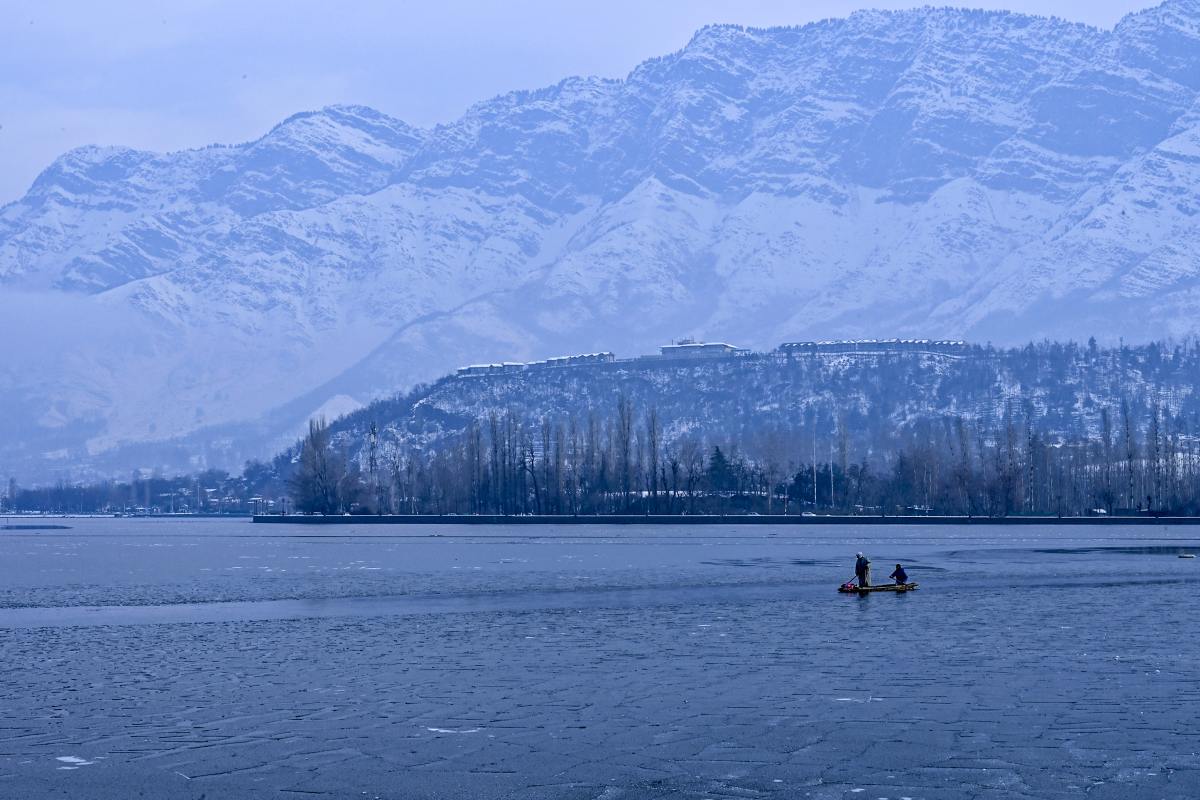Pakistan rejects US report on human rights practices
This year's report is once again conspicuous by its lack of objectivity and politicization of the international human rights agenda, it added.
Tensions between India and Pakistan spiked after New Delhi abrogated provisions of Article 370 of the Constitution to withdraw Jammu and Kashmir’s special status and bifurcated the state into two Union Territories on August 5, 1919.

India responded after Antonio Guterres on a four-day visit to Pakistan, said in Islamabad that he was concerned over the situation in Kashmir, and that he was ready to mediate between India and Pakistan to resolve the long pending issue. (File Photo by Tauseef MUSTAFA / AFP)
India on Sunday straightaway rejected an offer of mediation by UN chief Antonio Guterres on Kashmir saying instead Pakistan should vacate territories occupied by it “illegally and forcibly.”
India responded after Guterres on a four-day visit to Pakistan, said in Islamabad that he was concerned over the situation in Kashmir, and that he was ready to mediate between India and Pakistan to resolve the long pending issue.
Ministry of External Affairs (MEA) spokesperson Raveesh Kumar said, “India’s position has not changed. Jammu and Kashmir has been, is, and will continue to be an integral part of India. The issue that needs to be addressed is that of vacation of the territories illegally and forcibly occupied by Pakistan.”
Advertisement
He added, “We hope that the UN secretary general would press Pakistan to take credible and irreversible action to stop cross-border terrorism against India.”
Kumar while reiterating India’s stand on Kashmir said, “Further issues, if any, would be discussed bilaterally. There is no role or scope for third-party mediation.”
The MEA spokesperson added, “We hope the UN secretary general would emphasize on the imperative for Pakistan to take credible, sustained and irreversible action to put an end to cross-border terrorism against India, which threatens the most fundamental human right – the right to life – of the people of India, including in J&K.”
The UN secretary general said he was “deeply concerned” over the situation in Jammu and Kashmir and tensions along the Line of Control while addressing a press conference after his meeting with Pakistan Foreign Minister Shah Mahmood Qureshi in Islamabad.
Guterres said it was important for India and Pakistan to de-escalate “militarily and verbally” and exercise “maximum restraint” on the Kashmir issue and added that he was ready to help if both countries agreed for mediation.
“Diplomacy and dialogue remain the only tools that guarantee peace and stability with solutions in accordance with the Charter of United Nations and resolutions of the Security Council,” Guterres said.
The UN chief said he had “repeatedly stressed on the importance of exercising maximum restraint”.
“I offered my good offices from the beginning. I am ready to help if both countries agree for mediation,” he said.
Guterres arrived in Pakistan on Sunday and during his visit will attend an international conference on Afghan refugees and visit the Gurdwara Kartarpur Sahib.
Tensions between India and Pakistan spiked after New Delhi abrogated provisions of Article 370 of the Constitution to withdraw Jammu and Kashmir’s special status and bifurcated the state into two Union Territories on August 5, 1919.
India had categorically told the international community that the scrapping of Article 370 to revoke the special status of Jammu and Kashmir was an internal matter and also advised Pakistan to accept the reality.
India on January 23 reiterated its position on Kashmir saying that there is no role for any third party in the issue and reprimanded Pakistan for attempting to internationalise the issue.
The assertion came as US President Donald Trump, at the World Economic Forum (WEF) in Davos, once again reiterated his offer to “help” on the Kashmir issue, saying the US was “watching and closely following” the developments in the Valley.
Trump made the statement ahead of talks with “a very good friend” PM Imran Khan on the sidelines of the annual WEF in Switzerland.
Earlier in January, Deputy Permanent Representative of India to UN, Nagaraj Naidu had slammed Pakistan for “spewing venom and false narratives” of monumental proportions in the United Nations, saying it “takes to hate speech like a fish takes to water”.
“Just like a fish takes to water, one delegation has again taken to hate speech. Every time this delegation speaks, it spews venom and false narratives of monumental proportions,” Naidu said at the 74th session of the United Nations General Assembly.
Further, India slammed Pakistan Prime Minister Imran Khan for attempting to internationalise the Kashmir issue yet again and termed him “desperate” while adding that the “global community now understands the country’s double standards”.
Meanwhile, India had on several occassions slammed Pakistan for trying to internationalise the Kashmir issue. New Delhi had asserted that Islamabad needs to focus on the hard tasks it has to address in order to ensure normal relations with India.
Advertisement